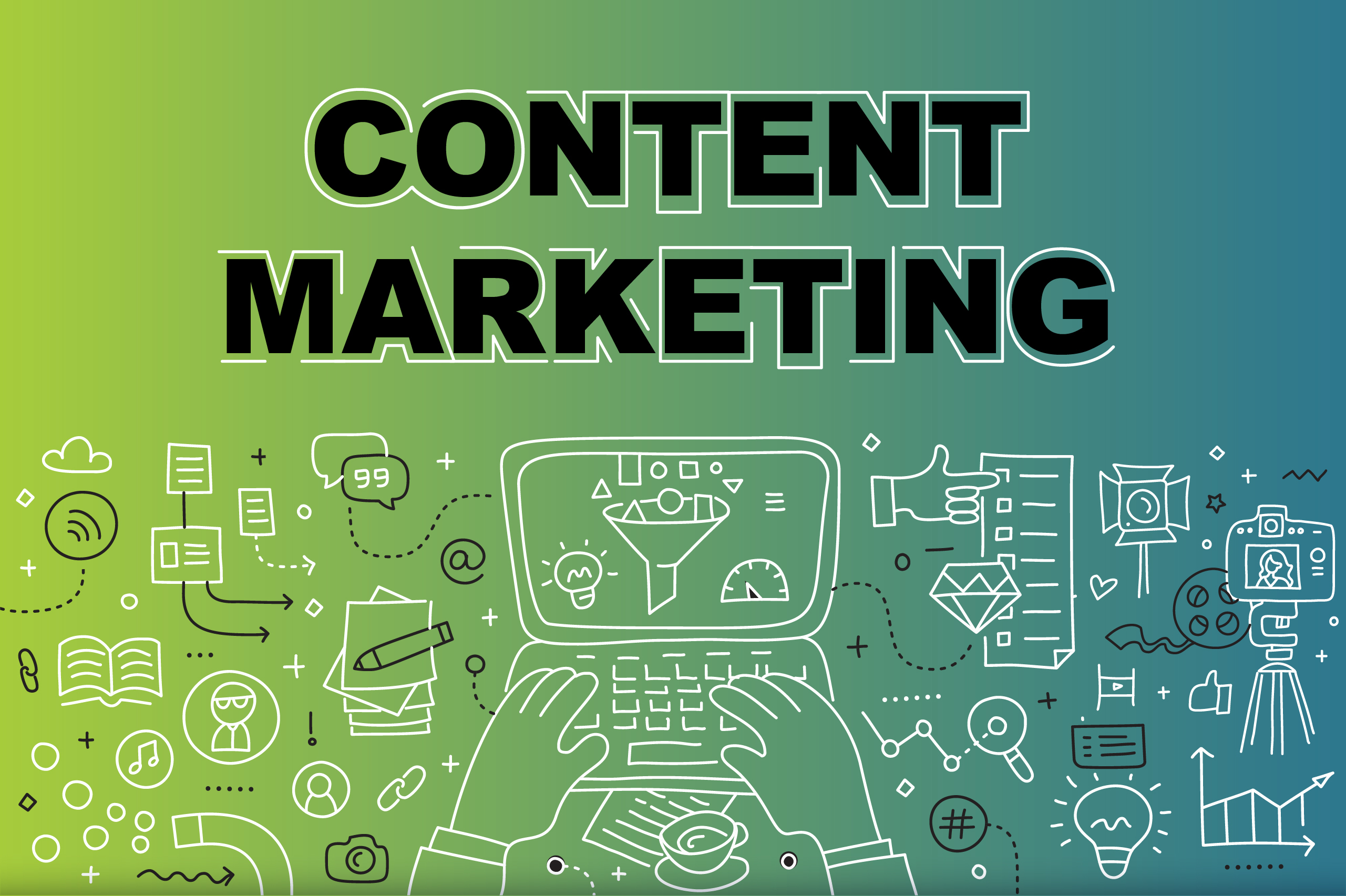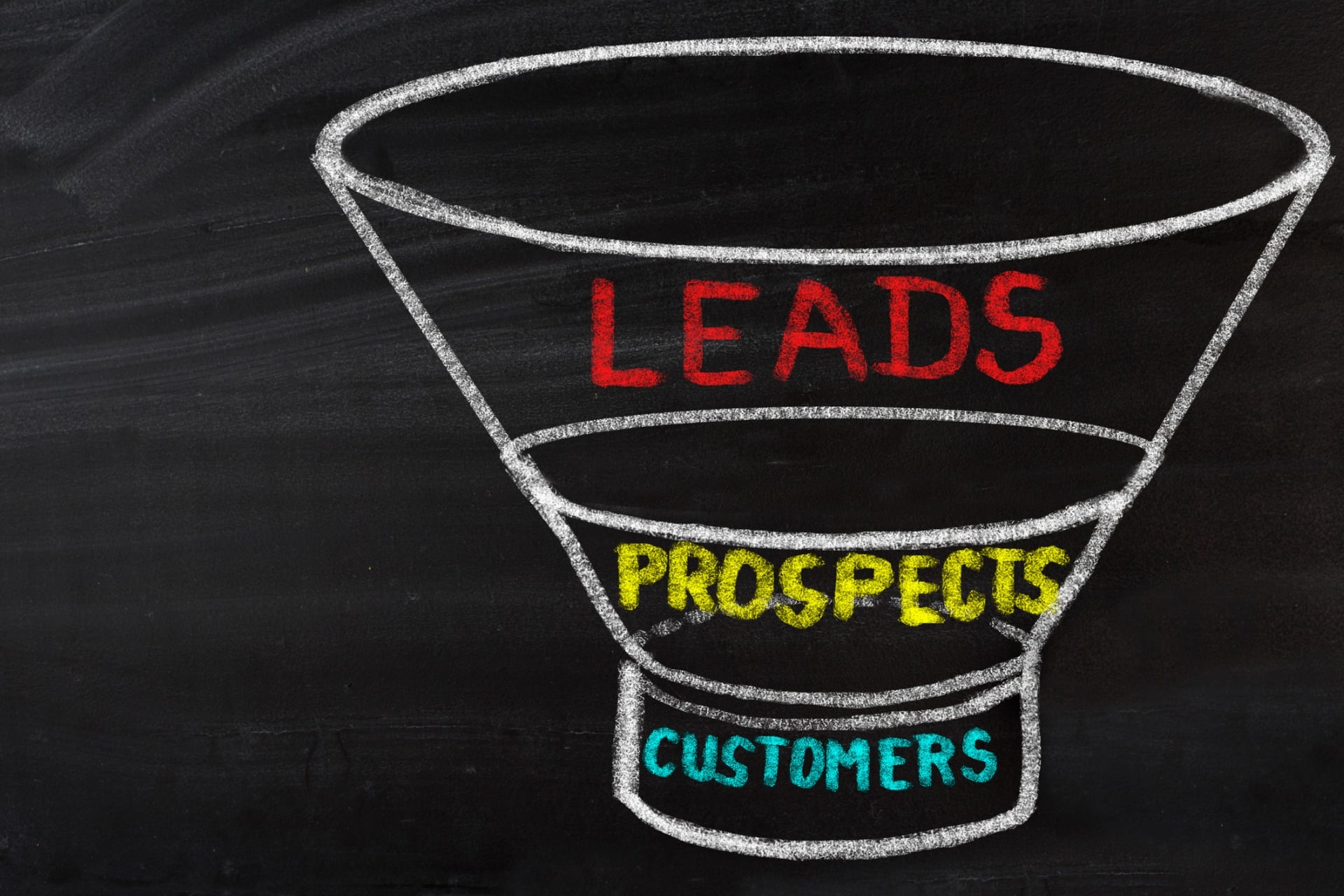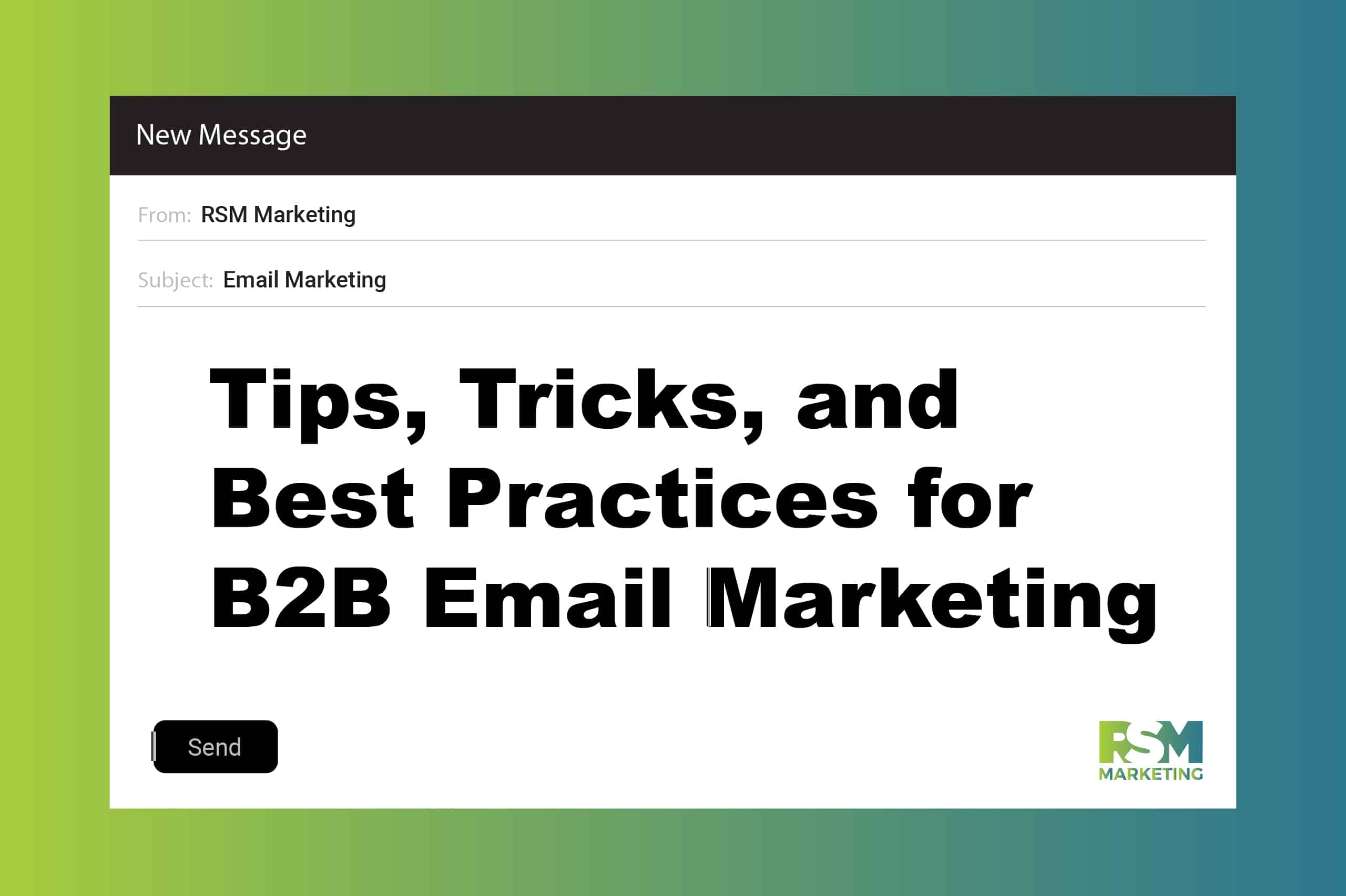Marketing Insights

Content marketing plays an essential role in your business’s customer acquisition and retention strategy. Making the initial contact with other business customers used to be the responsibility of your sales team, but today’s digital landscape means that most users are researching solutions to their problems on the internet.
Influencing B2B buyers can be challenging, so your marketing strategy needs to be just right (as opposed to too hot or too cold or too hard or too soft). This blog post discusses the importance of content marketing and will help you develop a foolproof B2B content marketing strategy!
Why You Should Make B2B Content Marketing a Priority
According to the Content Marketing Institute, 89% of B2B marketers use content marketing as part of their overall marketing strategy. An effective B2B content marketing strategy helps your company get the attention of key decision-makers in your targeted businesses. The following reasons illustrate why content marketing is crucial to your business’s success during the reign of Google.
Content Marketing Delivers More Traffic to Your Website
Simply put, the more authoritative and engaging your content is, the higher it will rank on search engines for your targeted keywords and phrases. When a B2B customer searches for something like, “top CMS software solutions in 2023,” your latest content about that particular topic is more likely to show up on Google if it is well-written, valuable, and optimized. This can result in more website traffic and activity on your site.
Content Marketing Builds Trust and Authority
When you provide valuable and relevant information to your audience—instead of hitting them with constant promotional pitches—it helps to foster trust and positions your brand as an authority in your market with a commitment to helping people solve problems.
Much of sales today is about addressing a buyer’s most pressing needs. When you’re an authority, you help B2B customers reduce risk. When you become known as a go-to resource, your business can quickly and easily fend off rivals.
Content Marketing Serves the “Self-Serve” Market
Many companies feel that excessive sales tactics are the best way to convert B2B prospects into paying customers, but a recent McKinsey survey revealed that B2B client preferences have shifted dramatically. In fact, a majority of clients in this space prefer to be left alone when gathering information—65% when researching and 61% when evaluating.
Your sales team might be top-notch, but if you aren’t providing the content that these “self-serve” customers crave, they’ll find another company that does.
Content Marketing Leads to Better… Well, Leads
One of the most significant benefits of a strong B2B marketing strategy is that it will deliver more qualified leads to your business. By focusing on the topics most important to your audience, you’ll be able to build brand awareness, foster trust, and boost lead generation. For example, ebooks, infographics, and white papers are excellent “lead magnets” that deliver the contact information of prospects so that you can continue to feed them valuable content.
What’s the Difference Between B2B and B2C Content Marketing?
Isn’t all content marketing essentially the same? It might be similar in many respects, but there are some critical ways that B2B content marketing differs from B2C content marketing.
Different Audiences
B2C audiences tend to be fairly broad. Sure, you can narrow your audience down to some specific demographics, but it’s basically any consumer who might be interested in your products or services.
B2B audiences are much more focused and sometimes target very specific industries and niches. On top of that, you have to target the key decision-makers (CEOs, management teams, directors, etc.) working at the businesses you serve. You can’t just target any random employee and hope to make a sale.
Different Distribution Methods
A business that sells custom cutting boards might be wildly successful on Pinterest, but that may not be the best platform for a B2B business that sells industrial pumps or WMS software. Interestingly, B2C content gets 10x more social shares than B2B content. That’s not to say B2B content isn’t effective, but much of it is distributed via your website and through email marketing.
Different Formats
Instead of Tweets and Instagram posts, which work better for B2C content, B2B relies on different formats. These include blog content, email newsletters, case studies, webinars, and PDF white papers. That’s not to say that you can’t be successful on Instagram, Twitter, or similar social media sites, but it may be far more difficult.
Different Styles
Effective styles can vary depending on your brand’s voice. A lot of B2C content is more emotional and fun, while B2B content tends to be more practical and tactical (woah… that rhymed). Once again, that’s not to say you can’t succeed with a carefree and lighthearted tone and attitude; it just depends on how you choose to present yourself.
How to Develop a Killer B2B Content Marketing Strategy
Your B2B marketing strategy needs a good plan if you want it to produce positive results. It’s not enough to create a spreadsheet of top key phrases and start blasting content on multiple platforms. These steps will help you develop a B2B marketing strategy that works.
1. Identify Your Target Audience
Even more important in B2B content marketing than B2C, you need to spend some time identifying your customer personas. These personas will help you build a more detailed picture of the key decision-makers in your target businesses. Are you creating content for company CEOs, purchasing managers, engineers, or someone else? What drives that person’s choices? Is it financial? Is it customer service? Is it product features? All of the above?
 2. Understand Your Sales Funnel
2. Understand Your Sales Funnel
Once you’ve identified your target audience, you need to get a complete understanding of your particular sales funnel, which is another way of describing the buyer’s journey. Unlike B2C sales, B2B brands often face extended and complex sales funnels.
As buyers move from one stage of the journey to the next, their interests and needs change, so the content you deliver should change as well.
In the Awareness Stage, content should focus on a buyer’s pain points. In the Consideration Stage, you’ll use content to provide various solutions. Finally, in the Conversion Stage, your content will include more brand-specific material that proves why your company’s product or service is the best option.
Sometimes a single piece of content, like a blog post, can address needs in all three stages of the buyer’s journey.
3. Establish Your Content Marketing Goals
The next step is to define how your content marketing will play a role in achieving your business goals. B2B content marketing can help your business in a variety of ways, such as creating brand awareness, acquiring qualified leads, generating demo or consultation requests, and even increasing customer acquisition and retention.
Before you build your content marketing strategy, establish your specific goals. These will drive some of your other decisions moving forward.
4. Build a Content Creation Workflow
Creating content can be challenging and time-consuming, so building an efficient workflow for content creation is essential.
In-House vs. Outsourced
Your first choice will be whether you create content in house or outsource it. Depending on your resources and priorities, you can decide which model works best for your business.
Content Process
If you create content in house, spend time creating a well-defined workflow with specific tasks. A blog post might require several tasks, including researching keywords, writing a first draft, editing and proofreading the draft, and publishing the post.
Roles and Responsibilities
Whether you handle content in house or outsource it, it’s important that everyone is on the same page. Everyone on your team should be clear about their roles and responsibilities. Determine who will be responsible for things like topic ideation, content creation, editing, posting, and promotion.
Content Tools
Find tools that help you streamline the process and improve your results. These might include workflow management tools, SEO tools, and social media management tools.
5. Plan Content Distribution and Promotion
Content distribution and promotion are vital components of any successful B2B content marketing strategy. The channels you target could make the difference between reaching your target audience and missing the mark.
According to the Content Marketing Institute, the most popular owned media channels for B2B content distribution include the following.
- Company website (90%)
- Blog (78%)
- Email (69%)
Popular, non-owned channels for distribution and promotion include social media platforms, industry events, third-party publications, and public relations or media. One of the benefits of promotion or distribution on external channels is that they can provide backlinks to your website, which can improve your search engine rankings.
6. Measure and Review Your Results
When creating your B2B content marketing strategy, remember that any digital marketing strategy requires ongoing monitoring. Establish key performance metrics so that you can gauge your results using tools like Google Analytics 4 or Search Console.
For example, if one of your goals is to increase sales, your KPI might be your conversion rate. These insights will tell you what type of content, topics, and distribution channels resonate best with your audience and which ones need some adjustments.
10 Content Formats You Can Use to Reach Your Audience
There’s more than one way to communicate your B2B marketing message to your target audience. In fact, varying your content format is an excellent way to effectively communicate at different stages along the sales funnel. Here are some proven B2B content formats that produce results.
1. Blog Posts
Blog posts represent the majority of B2B content used for marketing. While there are many different types of content you can produce, creating a blog on your business’s website should be number one on your list. Why? Companies that prioritize blogging are 13x more likely to experience a positive ROI. This is because blogging is easily accessible, can drive significant traffic to your website if it ranks well, and helps you relate to your audience.
2. eBooks & White Papers
Another popular format for B2B content is eBooks and white papers. According to one DemandGen survey, 79% of respondents listed white papers as the content they are most likely to share with colleagues.
eBooks and white papers can cover a wide variety of topics. You can produce comprehensive guides and even product or service comparisons.
3. Original Surveys and Research
If you want to outshine your competitors with your B2B content, you’ll need to do something they aren’t. Most of them probably aren’t conducting independent research. Think about any hot topics in your industry that could use some new insights or common questions asked by clients that you could produce new data on. These are excellent for getting backlinks and exposure because they are highly shareable.
4. Videos
Video content has exploded in popularity in recent years. Your business can produce videos on a variety of topics using a smartphone or more sophisticated equipment, depending on your budget. That content can be posted on your website, YouTube, or social media accounts to reach new audiences.
5. Webinars
Webinars are much more than just a video marketing strategy. These are educational events that you schedule to teach your audience about a particular industry or topic. Most of the time these events are even held live and then recorded to post and share later. They often involve bringing in panelists and experts to share their experiences and insights.
 6. Podcasts
6. Podcasts
Podcasts have become nearly as popular as video content because people can consume them “on the go.” In fact, 16 million Americans consider themselves “avid podcast fans,” listening to an average of seven shows weekly. Similar to webinars, these can be live broadcasts or pre-recorded shows that are edited for sharing.
7. Case Studies
When a business is considering working with another business, they often want to see some type of evidence that the product or service in question will work for them. This is where case studies can be invaluable. These are detailed customer success stories that outline another client’s challenges and how your business resolved them.
8. Checklists and Templates
Anytime you can help a potential client with something simple, they’ll remember your brand’s name when they require assistance with something major, such as the problems your products or services address. Free checklists and templates are valuable pieces of B2B content that can foster good will and trust.
9. Tools
Depending on your industry, you may be able to offer your readers some valuable tools that make their lives easier. For example, various online calculators are useful for different applications.
10. Newsletters
Finally, don’t discount the power of B2B newsletters for your content marketing strategy. Statistically, these produce a 3,800% ROI, which is amazing and something you absolutely want to leverage. Make sure you are effectively segmenting your email lists to get the most benefit from this strategy.
RSM Marketing Can Develop a Killer Content Marketing Strategy for Your Business!
B2B marketing is highly competitive. Without a solid digital marketing strategy, you’re likely to lose many targeted prospects and fall short of your goals. An effective B2B content marketing strategy can help your business gain the attention of key decision-makers and show them why they should choose your company over your competition.
RSM Marketing is a digital marketing company based in Kansas City. We serve clients all over the country and provide a full suite of digital marketing services. We can develop a content marketing strategy that is tailored to your business’s needs and prioritizes the people who are in the position to purchase your products or services.
We offer comprehensive blogging, social media, copywriting, and video and photography services, all of which are key components of a successful content marketing strategy. Don’t hesitate to fill out the form below if you have any questions! We take pride in being your unfair advantage.
Want Some Help?
That’s what we’re here for! Whether you need some guidance on moving in the right direction or a whole lot of marketing muscle—the experts at RSM Marketing can make it happen.
Start with a simple conversation! Complete the form and one of our team members will be in touch.

 2. Understand Your Sales Funnel
2. Understand Your Sales Funnel 6. Podcasts
6. Podcasts

